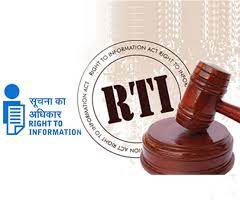

By Our Editorial Team
First publised on 2023-08-16 01:05:40
It seems that when the RTI Act was enacted by the government, it was not aware the kind of accountability citizens would demand from it under the same. That is why successive governments have tried to dilute the provisions of the Act to make it difficult for the citizens to obtain such information from certain government departments. The 2019 amendments to the Act almost made it a Central government department instead of an independent body. Then in 2021, the Delhi HC decreed that whoever wishes to obtain any information from any government department will have to specify in writing why they need the information and explain their interest in doing so, effectively killing the very reason for which the law was enacted. Now, the new personal data protection law mandates that personal information will not be released under the RTI Act queries. Originally, the RTI Act allowed the disclosure of personal information if it served the public interest. However, the new amendment outright prohibits the release of any personal information. This change, as highlighted by RTI activists, severely hampers the law's ability to address a multitude of genuine citizen concerns. Many inquiries related to essential matters such as pensions, rations, and government scholarships necessitate information about the individuals responsible for dispensing these benefits. With the blanket ban on sharing personal information, a valuable avenue for ordinary Indians seeking hope is effectively closed off.
RTI ACT was meant to be weapon by which the general public could expose misdeeds in government departments by demanding information about decisions taken. It was expected that the fear of disclosure would make bureaucrats to do everything above board as they would be accountable to the public who could use the RTI Act to obtain information. But successive governments have found the RTI Act a pain in the wrong place and have been using every opportunity to water down its provisions to make it a toothless tiger. As it is, the Information Commissions under the Act are understaffed with the top post remaining vacant in some states for as long as nearly 4 years. Backlog of cases has been rising significantly. So is the quantum of rejections. From 2015, there has been a substantial increase in rejections which now consistently average 60%. Collectively, this means that the RTI Act is all but dead. It also means that the bureaucrats will remain arrogant and the citizens powerless. The citizens will no longer have the right to any meaningful information.











